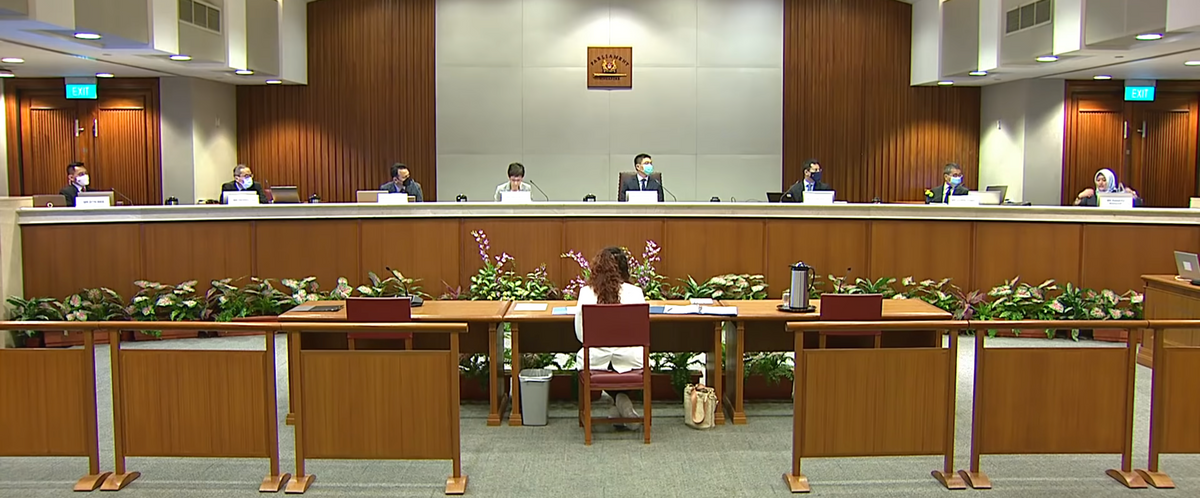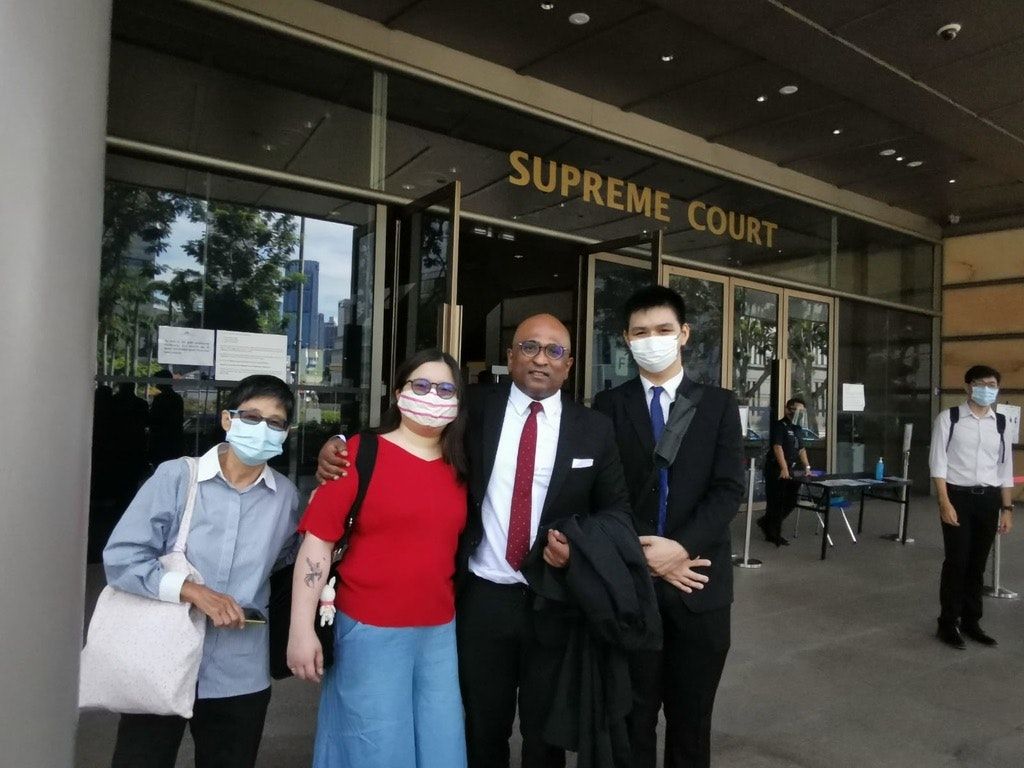I’m sending this to you this weekend from Jakarta, where I’m making a flying visit before heading home in time for the closing event in TJC’s series of World Day activities!
(1)
As a newsletter that covers major political developments in Singapore, I can’t get out of giving the Pritam Singh trial a mention. But perhaps I can provide a take I haven’t seen on other media/newsy platforms: the trial is big news not because it’s actually important, but because political drama—or what passes for political drama in Singapore—is titillating and gives us something to talk about in group chats and over dinner tables. This trial is not in the public interest, especially not in the way it’s being covered. It’s a circus, a distraction, and it’s doing more harm than good.
Just in case anyone needs a catch-up: this is a trial to determine whether or not Pritam Singh lied to the Committee of Privileges (COP), convened after Raeesah Khan admitted to having lied about accompanying a survivor of sexual assault to the police station. The reality, as it turned out, was that she hadn’t accompanied the survivor, but had heard about their experience at a support group for survivors. Not wanting to out herself as a survivor of sexual assault, Raeesah chose to pretend that she’d known about the incident because she’d gone to the station too. After this came to light, everything erupted into a mess of investigating who in the Workers’ Party knew what when, who said what, who did what, so on and so forth, bringing us to today three years later.
The trial is ongoing but so far things don’t look great for anyone. It’s a mess: bad decisions were made; people panicked; people tried to minimise damage, either for themselves, their friends, their party or—lagi headache—all of the above; people said things in group chats that they later regretted; people took sides; people felt betrayed; relationships have broken down completely. Some observers are of the opinion that Pritam lied and threw a young comrade under the bus, some think it should be Raeesah on trial instead, others feel like the PAP was on a witch-hunt that has continued until today. Nobody is coming out of this looking good (I don’t care if there are Andre Jumabhoy thirst tweets on social media). This trial is toxic and ugly, with online shitposting adding to the intensity. None of this is in the public interest.
Maybe the court will ultimately find that Pritam lied. Maybe they won’t. So what? I ask this not because I don’t value accountability—what I’m asking us all to consider is what the stakes really are. Is the harm that’s been caused so great that it necessitates this response?
What Pritam did, or didn’t do, at most reflects his integrity and competency as a politician and party leader. If he, or any other politician, has failed to live up to necessary standards, we can and should call it out. These are things the electorate can take into account when we next go to the polls—if you don’t trust a particular party or politician, you don’t have to vote for them. But did we need a COP, an investigation and now this big-ass, expensive trial? What real political power does Pritam have? His party doesn’t even have enough seats to affect the passage of any legislation. Was there corruption? Did he steal public funds or resources? Did he do something that has some impact on state institutions and how they serve the public? Is what we’re seeing a sensible and proportionate response? If it isn’t, then we should ask ourselves who is benefitting the most from this shitshow, and why we should be helping them make hay.
I agree that we shouldn’t condone lying or act as if truth doesn’t matter. Of course politicians shouldn’t be given blank cheques to, as we say in Singapore, anyhow. But please, let’s not pretend that Raeesah’s lie was the first time a politician has ever lied in Singapore, or that we’ve always demanded accountability with the same intensity. I wrote this special issue back in 2021, and I think a lot of it still holds true today:

There are so many other ways we could have held Raeesah accountable for what she did, and demanded better of the WP. But this trial is generating maximum toxicity for minimum public gain (I mean, now Rahayu Mahzam is threatening to sue Donald Low, for fuck’s sake)—especially for the survivors of sexual assault who actually do need us to pay attention to how reports are handled by the police and the criminal punishment system, and how rape culture as a whole needs to be addressed. (I would encourage everyone upset with Raeesah for setting this important cause back to address this by redirecting their attentions and energies away from blaming Raeesah towards supporting survivors of sexual assault.)
At the risk of being repetitive, I’d just like to point everyone’s attention to two pieces of news covered in last week’s wrap: the Court of Appeal ruled that the Attorney-General’s Chambers and Singapore Prison Service acted unlawfully requesting and/or forwarding the private correspondence of death row prisoners. The Court of Appeal even pointed this out (emphasis mine):
That the AGC had asked for and received Mr Suhail’s letters to his uncle was also disclosed by the AG in the affidavit of DAG Nair filed in OS 975 on 18 November 2020 (see above at [5]). This disclosure was accompanied by the claim that the AGC did not use this correspondence or otherwise gain any advantage in any legal proceedings against Mr Suhail.
In DAG Tai’s three affidavits, however, it was explained that the Deputy Public Prosecutors (“DPPs”) involved in Mr Suhail’s appeal in CCA 38 had seen Mr Suhail’s letters to his uncle.
[…]
In essence, it became clear to us that Mr Suhail’s correspondence had not only been requested by the AGC, but also used by the Prosecution in CCA 38 in so far as, in its submissions, it had noted the fact that Mr Suhail had sent letters to his uncle. This seemed at odds with the Respondent’s previous representation in OS 975 that Mr Suhail’s correspondence had not been used in any legal proceedings.
In another case, the court acquitted two men in a bribery case because the statements taken by the investigating officers had been found to be “unreliable”. The court described the IOs as having been “mischievous and conveniently selective” about what to record in the statement and taken “several liberties in constructing the statement”. The AGC has since indicated that they will appeal this decision.
These cases, to do with the conduct of the state prosecution/government’s legal adviser, prison service and Corrupt Practices Investigation Bureau, have much more serious implications for the public interest. But they’ve been little more than blips on the Singapore news radar, swallowed up by gleeful gossiping and arguments over blow-by-blow ‘revelations’ from an unnecessary trial.
(2)
The government has proposed amendments to the Administration of Justice (Protection) Act—already an overly expansive contempt of court law—to target “egregious abuses of the court process”. This proposal is framed as targeting “groundless” applications that abuse the court process for “nefarious” purposes, but it has grave implications for access to justice and due process in Singapore.
This is especially the case for death row prisoners. In recent years, we’ve seen increasingly hostile rhetoric about post-appeal applications being “abuse of court process” filed to “stymie” executions. A new law was passed in 2022 to further raise the threshold for filing post-appeal applications in capital cases—it came into effect this year. K Shanmugam, the Minister for Home Affairs and Law, has indicated for some time that he’d like to bring in even more measures, so here we are.
The government is justifying this position by saying that they are only targeting “groundless” applications. But whether a case has merit or not should be determined by the courts, so they should be brought to the courts. A law like this will likely have the effect of scaring people away from helping death row prisoners—the Ministry of Law statement says that “persons who cause or abet such conduct will also be liable for contempt of court”. It’s not possible to have a spot-on assessment of whether a court will eventually find a case unmeritorious, so people might find it easier to stay away from post-appeal applications completely just to avoid taking risks.
It is crucial that people have every opportunity to make post-appeal applications free from fear or intimidation. The prison correspondence case mentioned in the previous section? That issue was surfaced via a series of post-appeal applications. Yong Vui Kong is alive today because M Ravi filed such applications; same with Gobi Avedian. In 2022, after Datchinamurthy received an execution notice, local lawyers didn’t feel he had a strong case to proceed and didn’t want to take it on. He ended up representing himself to argue for a stay of execution… and won at both the High Court and the Court of Appeal. If Datchinamurthy hadn’t had the courage and wherewithal to argue his own case, he wouldn’t be alive today. That’s one example of how lawyers’ assessments of whether a case is truly “groundless” is not always accurate—to find out for sure, people need to bring the case to court. Anything that might deter or obstruct people from doing so is making our system weaker, not stronger.

Milo Peng Funders get first dibs, but if a book goes unclaimed for some time I might share it with the general list, so watch this space.


